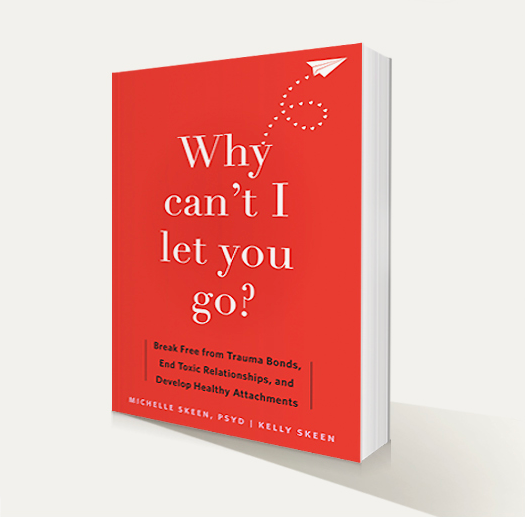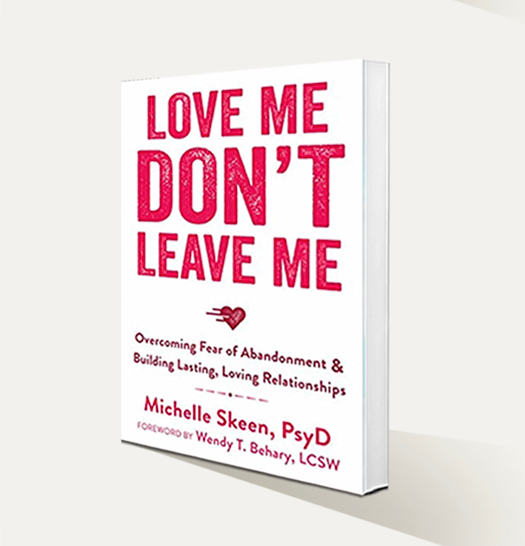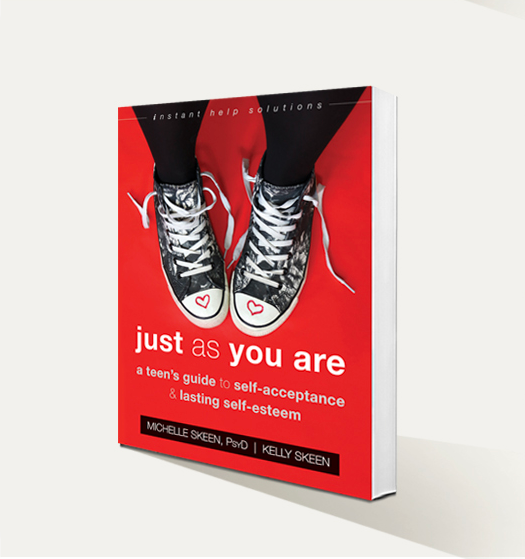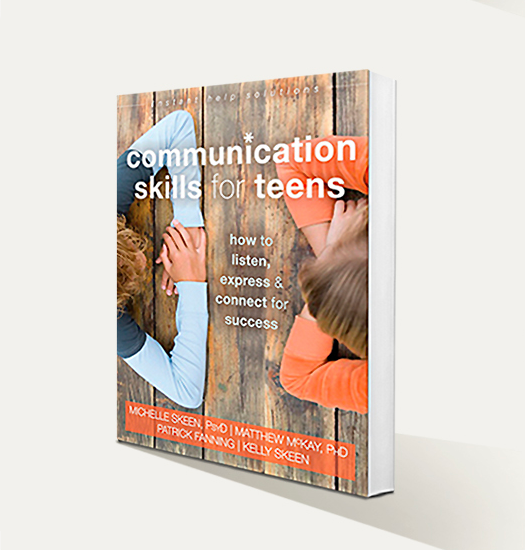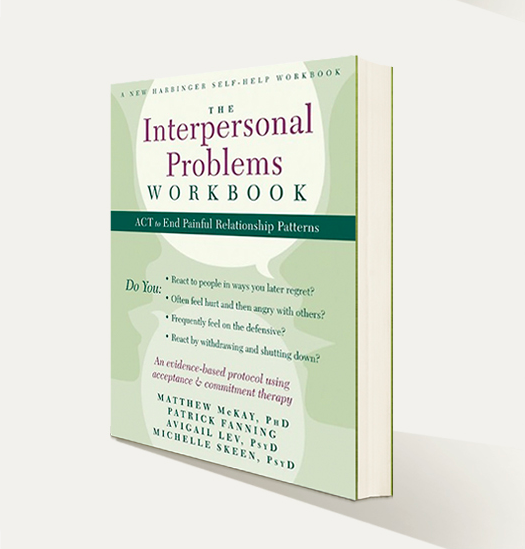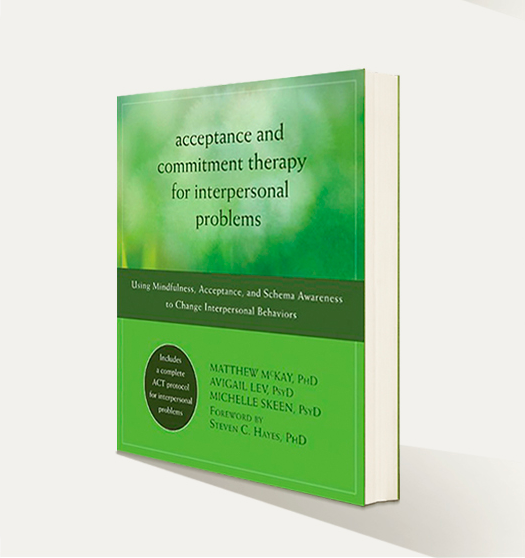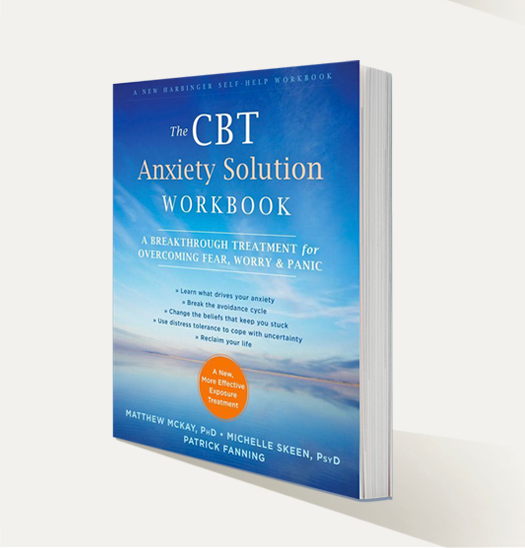Radio show on Thursday November 1, 2018
This week on Relationships 2.0 my guest host is Shawn T. Smith PsyD who interviewed me about my book Love Me Don’t Leave Me: Overcoming the Fear of Abandonment & Building Lasting, Loving Relationships
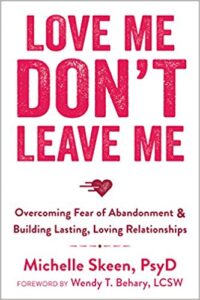 About the book: Everyone thrives on love, comfort, and the safety of family, friends, and community. But if you are denied these basic comforts early in life, whether through a lack of physical affection or emotional bonding, you may develop intense fears of abandonment that can last well into adulthood―fears so powerful that they can actually cause you to push people away. If you suffer from fears of abandonment, you may have underlying feelings of anger, shame, fear, anxiety, depression, and grief. These emotions are intense and painful, and when they surface they can lead to a number of negative behaviors, such as jealousy, clinging, and emotional blackmail. In Love Me, Don’t Leave Me, therapist Michelle Skeen combines acceptance and commitment therapy (ACT), schema therapy, and dialectical behavioral therapy (DBT) to help you identify the root of your fears. In this book you’ll learn how schema coping behaviors―deeply entrenched and automatic behaviors rooted in childhood experiences and fears―can take over and cause you to inadvertently sabotage your relationships. By recognizing these coping behaviors and understanding their cause, you will not only gain powerful insights into your own mind, but also into the minds of those around you. If you are ready to break the self-fulfilling cycle of mistrust, clinginess, and heartbreak and start building lasting, trusting relationships, this book will be your guide.
About the book: Everyone thrives on love, comfort, and the safety of family, friends, and community. But if you are denied these basic comforts early in life, whether through a lack of physical affection or emotional bonding, you may develop intense fears of abandonment that can last well into adulthood―fears so powerful that they can actually cause you to push people away. If you suffer from fears of abandonment, you may have underlying feelings of anger, shame, fear, anxiety, depression, and grief. These emotions are intense and painful, and when they surface they can lead to a number of negative behaviors, such as jealousy, clinging, and emotional blackmail. In Love Me, Don’t Leave Me, therapist Michelle Skeen combines acceptance and commitment therapy (ACT), schema therapy, and dialectical behavioral therapy (DBT) to help you identify the root of your fears. In this book you’ll learn how schema coping behaviors―deeply entrenched and automatic behaviors rooted in childhood experiences and fears―can take over and cause you to inadvertently sabotage your relationships. By recognizing these coping behaviors and understanding their cause, you will not only gain powerful insights into your own mind, but also into the minds of those around you. If you are ready to break the self-fulfilling cycle of mistrust, clinginess, and heartbreak and start building lasting, trusting relationships, this book will be your guide.
About the author: Michelle Skeen, PsyD, has a doctorate in clinical psychology. She is author of seven books, all designed to enhance relationships by emphasizing the importance of identifying core values and valued intentions, limited thinking, mindfulness, self-compassion, empathy, and effective communication and conflict resolution skills. Her passion is coaching individuals in creating and maintaining healthy relationships by bringing awareness to obstacles (fears and beliefs), which often work unconsciously to limit connections with others. Michelle believes that an early introduction and education in core values and healthy communication are essential life skills for success. To that end, Michelle and her daughter, Kelly, coauthored Communication Skills for Teens and Just As You Are. Skeen completed her postdoctoral work at the University of California, San Francisco. She codeveloped an empirically validated protocol for the treatment of interpersonal problems that resulted in two books: Acceptance and Commitment Therapy for Interpersonal Problems and The Interpersonal Problems Workbook. Michelle’s work has appeared in more than thirty publications around the world. She hosts a weekly radio show called Relationships 2.0 with Dr. Michelle Skeen that airs nationally. To find out more, visit her website at www.michelleskeen.com.
These 3 Stories Perfectly Illustrate Why It’s So Hard To Get Over Your First Love
Women’s Health
by Anna Breslaw
First comes love… then comes a tsunami of what-ifs. Your first relationship is like no other, which is why its shadow lingers and shapes every romance that follows. How do you make peace with those memories—and is there such a thing as a second chance?
When artist Rora Blue asked a single Q—”What would you say to the first person you fell for?”—those were three of the 34,000 responses she received. The messages became a Web installation called The Unsent Project, which continues to grow. Why the lasting intensity? “It’s called primacy,” says Jennifer Talarico, Ph.D., a cognitive psychologist at Lafayette College in Easton, Pennsylvania. “Memories of a first experience are more vivid than similar events that come later.” Like baby ducks thinking a dust mop is “mom,” a part of you can’t shake that imprint of “partner”—enticing some to toy with (or even act on) rejoining that partner years later. Read on for intel on how to live with the enduring presence of the one who taught you about love, good and bad.
LASTING IMPRESSION: ALISON*, 24
She still uses her high school boyfriend’s nickname and birthday for her Web passwords—seven years after they broke up. “I lost my virginity to him,” Alison says. “It was New Year’s Eve, with literal fireworks going off in the background. Cheesy, but awesome.” Beyond the fact that sex releases a surge of oxytocin and dopamine, first sex partners also play a key role in developing our identities, says Michelle Skeen, Psy.D., author of Love Me, Don’t Leave Me. “She became a sexual being with him, and he was the first person to reflect that new self back to her.”
Now Alison is “happily settled in a relationship with the person I know is The One”—and yet, paradoxically, she still thinks about her first and secretly hopes she might run into him someday and get coffee together. “He just left such an impression on my heart. Even though I haven’t spoken to him in ages and probably never will, I feel like I’ve been permanently molded by him.” Skeen’s response? First, change those passwords, which keep memories of the ex alive. “When we’re continually looking back at the past, it impacts the present.” Research bears out the dangers: A new Kansas State University study of 7,000 couples shows that the more accepting people were of their partners being in touch with former flames on social media, the more harmful it was to their relationship—partly because it can create a “slippery slope” of temptation during difficult times.
The other problem with musing about him is that it’s too easy to embellish the past, especially when you’re feeling ticked off at your SO. “Remembering something isn’t like replaying a video,” says Talarico. Instead, she explains, it’s a process of reconstruction. The basic elements stay the same, but you put them together a bit differently each time. So for instance, a trip you shared that had real moments of conflict can seem, in gauzy retrospect, like one long romantic high.
UNFINISHED BUSINESS: SANDRA, 30
When she was 18, a college sophomore studying abroad at Cambridge, Sandra met her first boyfriend; he was British and 22. “Ever since then I’ve thought that this is how love should feel—like a force of nature greater than yourself,” she recalls. When she returned to the States, they kept it up long-distance for a year. “We planned our future together, from the apartment we’d share to the daughter we were sure we’d have, named Chloe.” Sandra was blindsided when he broke up with her right before her graduation, saying he needed to focus on his career. “For weeks, I lay in bed hardly eating or sleeping,” she says. “I fell into a deep well of self-loathing—I felt like the only logical conclusion was that I was so horrible, a man wouldn’t want to be with me.”
The intensity of Sandra’s anguish actually has a neurological basis, says Helen Fisher, Ph.D., anthropologist and research fellow at the Kinsey Institute at Indiana University in Bloomington. Fisher analyzed the brains of people who’ve been dumped, using an fMRI scanner, and found that when they thought about their former love, they experienced a “brain explosion” that targeted areas linked to cravings, addiction, and physical pain. That chemical storm can lead to a sense of unfinished business—even, as in Sandra’s case, a decade later.
“I’ve had plenty of passionate romances since then, but have never felt consumed like that,” she says. And she may never again, says Skeen: “When we’re younger, we’re much more emotional, and we haven’t been burned yet.” So we enter into the relationship at full speed, and with very little self-protection. Sandra still occasionally dreams about him, and she wonders if meeting up with him once would break the spell. But what haunts her, says Skeen, “is not so much the loss of him, but the visceral memory of her hurt, younger self.” Skeen advises a dose of self-compassion. “Her 30-year-old self is judging the 18-year-old she once was. I would have her write a letter to that younger self, saying, ‘Look, you were only 18. You didn’t have all the answers, so don’t beat up on yourself.’ “
ANOTHER SHOT: LORI AND JOHN, 51 AND 53
They dated innocently in high school, at ages 15 and 17: no sex, just lots of time together. Then her family moved, and despite love letters and phone calls, they eventually lost touch—but neither ever forgot the other, even though both married other people. “I dreamed of John so many times,” says Lori. “And I wished my husband was like John, who became the epitome of who I thought a man and husband should be.”
These long-lasting memories are due to a “reminiscence bump,” says Talarico; you tend to recall best the life events that occurred from ages 15 to 30, perhaps because those years contain the bulk of our first experiences. When Lori’s unhappy marriage broke up, she tracked down John online and found out he was also divorced. They talked on the phone that night, and soon after they were Skyping daily. Eighteen months later, they got engaged. Says Lori, “I felt compelled to find the kind of love I knew before.”
Will it last the second time around? Two circumstances can improve your odds of success, says Nancy Kalish, Ph.D., author of Lost & Found Lovers, and Lori and John fit both: having met at age 22 or younger, and breaking up because of “situational factors,” like a move, rather than core disagreements. Kalish’s 20 years of research show that three-quarters of reuniting couples will stay together long-term—if both parties are single when they reconnect. “Many people who reunite say their ‘lost love’ became the ‘standard for all the rest,’” she says. “It’s not just nostalgia, or sex, or an unresolved issue. It’s real love.”
*All names and identifying details have been changed.
Read it on Women’s Health
My radio show on Thursday September 21, 2017
This week on Relationships 2.0 my guest is Rebekah Freedom McClaskey author of Breakup Rehab: Creating the Love You Want
 About the book:
About the book:
Turn Your Pain from Breakup into an Opportunity to Grow toward True Love
After her devastating breakup, counselor Rebekah Freedom McClaskey became inspired by her work in the field of addiction recovery to craft a safe, step-by-step path to forging healthy relationships based on honesty, love, integrity, and trust. Breakup Rehab addresses post-breakup chaos, providing clarity and direction so that your next relationship will be your best relationship.
This wise, real-world, and often humorous guide acknowledges the state of grief or resignation that comes with a breakup and then walks you through the stages of forgiveness and letting go. Along the way, you’ll experience a more compassionate self-awareness as you rebuild self-confidence and learn how to be loved for who you truly are. These steps will propel you forward on your unique path, as you recognize your life’s purpose and then travel toward well-being and a love that will set you free.
About the author:
Rebekah Freedom McClaskey is a breakup specialist whose private practice focuses on helping clients get what they want out of life and love. She lives in Southern California.
My radio show on Thursday September 1, 2016
This week on Relationships 2.0 my guest is Candace V. Love author of No More Narcissists!: How to Stop Choosing Self-Absorbed Men and Find the Love You Deserve

About the book:
Why do some women date, or even marry, narcissistic men—over and over? In this provocative book, a clinical psychologist and expert in narcissism offers 7 secrets to help women finally break free from their attraction to narcissistic men.
Do you keep finding yourself in relationships with narcissistic men? Is your boyfriend or husband solely focused on fulfilling their own needs and unable to see things from your perspective? If you’re tired of dealing with a self-absorbed partner and are ready to be treated with kindness, respect, and sensitivity, this book is for you.
In No More Narcissists!, psychologist Candace Love provides a road map for women to finally get the love they deserve. Using skills based in cognitive behavioral and schema therapy, you’ll gain an understanding of why you’re attracted to narcissistic men, how you can avoid being drawn in by a narcissist’s initial charm and magnetism, and how to heal so you can finally move on to healthy relationships.
You’ll find out how the basic principles of schema theory—core beliefs about ourselves and our environment that we acquire in childhood and adolescence—can play an important role in why you’re attracted to narcissists and seek them out. Also included are targeted exercises and techniques that will encourage you to examine your past relationships and take meaningful steps to promote self-care and healing.
Isn’t it time you broke the cycle of hurt, frustration, and pain that comes with loving a narcissist? This book will show you how to let go of these destructive relationships once and for all, love yourself unconditionally, and find the love you deserve.
About the author:
As a licensed clinical psychologist, Candace V. Love, PhD, is passionate about helping women avoid narcissistic relationships. As founder and president of North Shore Behavioral Medicine, which has offices in downtown Chicago and Grayslake, IL, Love uses evidence-based techniques derived from cognitive behavioral therapies, including mindfulness and schema therapy. Much of her spare time is divided between the least narcissistic of creatures—namely animals. She enjoys riding horses and rehabilitating feral cats in the woods behind her home, and indulging in the next foodie find—whether it be a gourmet meal, vintage wine, or craft beer.
My radio show on Tuesday September 23, 2014
My guest this week on Relationships 2.0 is Marie Williams, author of Green Vanilla Tea: One Family’s Extraordinary Journey of Love, Hope and Remembering.
 About the book:
About the book:
Green Vanilla Tea is a true story of love and courage in the face of a deadly and little understood illness. With literary finesse, compassion, and a powerful gift of storytelling, Marie Williams writes poignantly of her husband Dominic’s struggles with early onset dementia and amyotrophic lateral sclerosis (ALS) at the age of 40, and how their family found hope amidst the wreckage of a mysterious neurological condition.
As the condition develops and progresses, the normally devoted family man and loving partner seems to disappear beneath an expressionless facade, erratic behavior, and a relentless desire to wander that often leaves him lost. The road to diagnosis is long and confusing, and what starts off as perplexing for the family then becomes frightening. The man they love is changing, and no one seems to know why. He no longer turns up to his sons’ high school events. He falls and bumps into things. He becomes verbally disinhibited, emotionally disengaged, and, at times, belligerent. He doesn’t seem to be able to read the social cues of other people. He gets lost in familiar places, as well as on obsessive work trips overseas. He recklessly spends the family money, leaving them in near financial ruin. Despite this, Williams and her children strive to find new ways to keep him safe and to connect with the husband and father they love so dearly.
While the family learns to cope with Dominic’s illness—which they call the Green Goblin—Williams is determined that her children reclaim the dad of their memories. She finds creative ways to make visible the stories of the man beyond the illness, and helps them remember him as the engaged, healthy, and loving man she fell in love with. She humanizes the experience through storytelling and assembling a quilt made up of transferred photographs, painted artwork, family footprints, and personal inscriptions from family and friends. This, along with tea rituals, music, and stories of fatherhood, love and value, support them as fierce advocates for Dominic’s dignity and give the family new ways to be together as they journey through his decline. Spanning between moments of intense joy and incredible sadness, this book is a passionate testament to one family’s unconditional love for one another. It is, “a tale of a strange place—the real world— in which green goblins and hope find a way to live together.”
Above all, it is a love story.
About the author:
Marie Williams has worked as a clinical social worker in health settings, nonprofit sectors, clinical education, and private practice. She is also an artist and believes in the power of creativity and story to transform. The Australian edition of Williams’ book, Green Vanilla Tea won the national Finch Memoir Prize in 2013. Williams lives in Brisbane, Australia.
Guest for my radio show on Tuesday January 14, 2014
This week on Relationships 2.0 my guest is Echo Bodine author of What Happens When We Die: A Psychic’s Exploration of Death, Heaven, and the Soul’s Journey After Death.
 About the book:
About the book:
With her signature wit and fearlessness, beloved psychic and healer Echo Bodine offers answers to life’s biggest questions: Is there a heaven? Are there people who have been there and come back? Do we have souls? Can we communicate with deceased loved ones?
Based on Echo’s personal experience of observing the souls of people nearing death and communicating with souls who have died, this comforting book shines light on the dying process and the afterlife. Her clear and fascinating stories demystify this universal experience and demonstrate that death is nothing to fear. You’ll learn about:
• the stages the body goes through preceding death
• the white light and the tunnel that lead to the other side
• how to make sense of the death of children
• what happens to those who commit suicide
• the nature of heaven
Echo offers practical tools for being with dying loved ones (including what not to do), for grieving (through the poignant experience of her mother’s passing as Echo was writing this book), and for cultivating clear communication with the deceased. Learning what happens when we die can be inspiring, reassuring, and profoundly life changing.
About the author:
Echo Bodine is a renowned spiritual healer, psychic, and teacher. Her previous books include The Gift, Echoes of the Soul, and A Still, Small Voice. She lectures widely on intuition, spiritual healing, and life after death; cohosts the bimonthly online show Sisters for the Soul; and has a popular blog. She lives in Minneapolis.
Guest for my radio show on Tuesday April 2, 2013
My guests on Relationships 2.0 this week are Rebecca Williams and Julie Kraft, authors of The Mindfulness Workbook for Addiction: A Guide to Coping with the Grief, Stress and Anger that Trigger Addictive Behaviors.
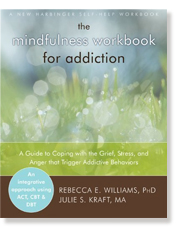 About the book:
About the book:
Most addictive behavior is rooted in some type of loss, be it the death of a loved one, coming to terms with limitations set by chronic health problems, or the end of a relationship. By turning to drugs and alcohol, people who have suffered a loss can numb their grief. In the process, they postpone their healing and can drive themselves further into addiction.
The Mindfulness Workbook for Addiction offers readers an effective program for working through their addiction and grief with cognitive behavior therapy (CBT), dialectical behavior therapy (DBT), and acceptance and commitment therapy (ACT). Created by a psychologist who works for the Department of Veterans Affairs and a marriage and family therapist who works for Sharp Mesa Vista Hospital, this mindfulness training workbook is effective for treating the emotion dysregulation, stress, depression, and grief that lie at the heart of addiction. No matter the loss, the mindfulness skills in this workbook help readers process their grief, determine the function their addiction is serving, and replace the addiction with healthy coping behaviors.
About the authors:
Rebecca E. Williams, PhD, is a clinical psychologist specializing in recovery from mental illness and addictions. She received her master’s degree from Harvard University and her PhD from the University of California, Santa Barbara. She is currently the director of the Veterans Affairs San Diego Healthcare System’s Wellness and Vocational Enrichment Clinic. In addition, she is an associate clinical professor in the Department of Psychiatry at the University of California, San Diego, an adjunct faculty member at the University of San Diego, and coauthor of Couple Therapy for Alcoholism. She has a psychotherapy practice in San Diego, CA.
Julie S. Kraft, LMFT, received her master’s degree in marriage and family therapy from the University of San Diego’s School of Leadership and Education Sciences. She has provided counseling to veterans and their family members at the Veterans Affairs San Diego Healthcare System and has provided psychotherapy to individuals, couples, families, and groups in community settings. In her current position with Sharp HealthCare, she treats clients struggling with both addiction and mental health concerns. She lives and works in San Diego, CA.
Guest for my radio show on Tuesday August 21, 2012
 This week’s show is in memory of our beloved dog Mac who died on May 3rd, a month after his diagnosis with inoperable pancreatic cancer. His life ended too soon and our family experienced tremendous sadness and loss. It is this sadness and loss that inspired me to seek out someone who could discuss the important role that pets play in our lives and why their loss is so painful. This show is also dedicated to our dog Lucy (Mac’s constant companion for over 8 years) and our cat Eddy.
This week’s show is in memory of our beloved dog Mac who died on May 3rd, a month after his diagnosis with inoperable pancreatic cancer. His life ended too soon and our family experienced tremendous sadness and loss. It is this sadness and loss that inspired me to seek out someone who could discuss the important role that pets play in our lives and why their loss is so painful. This show is also dedicated to our dog Lucy (Mac’s constant companion for over 8 years) and our cat Eddy.
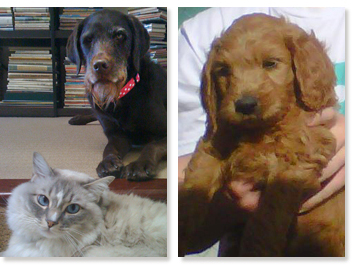
And the newest member of our family, Doug.
I am pleased to have author and Reverend Gary Kowalski on my show to discuss his book, Goodbye, Friend: Healing Wisdom for Anyone Who Has Ever Lost a Pet.
About the book:
The loss of an animal companion can be a painful, wrenching experience. In Goodbye, Friend, Gary Kowalski takes you on a journey of healing, offering warmth and sound
 advice on how to cope with the death of your pet. Filled with heartwarming stories and practical guidance on such matters as taking care of yourself while mourning, creating rituals to honor your pet’s memory, and talking to children about death, Goodbye, Friend is a beautiful and comforting book for anyone grieving the loss of a beloved animal.
advice on how to cope with the death of your pet. Filled with heartwarming stories and practical guidance on such matters as taking care of yourself while mourning, creating rituals to honor your pet’s memory, and talking to children about death, Goodbye, Friend is a beautiful and comforting book for anyone grieving the loss of a beloved animal.
About Gary:
Reverend Gary Kowalski is the author of bestselling books on animals, nature, history and spirituality. A graduate of Harvard College and the Harvard Divinity School, his work has been translated into German, French, Spanish, Japanese, Chinese and Czech and been voted a “Reader’s Favorite” by the Quality Paperback Book Club. Whether investigating the emotional lives of animals, de-mystifying faith of America’s Founding Fathers, unpacking the Bible or pondering the frontiers of modern physics, Gary’s work centers on the connection of spirit and nature… acknowledging our kinship with each other and with a universe that is passionate, evolving and alive. Visit his website at www.kowalskibooks.com.
 About the book: Everyone thrives on love, comfort, and the safety of family, friends, and community. But if you are denied these basic comforts early in life, whether through a lack of physical affection or emotional bonding, you may develop intense fears of abandonment that can last well into adulthood―fears so powerful that they can actually cause you to push people away. If you suffer from fears of abandonment, you may have underlying feelings of anger, shame, fear, anxiety, depression, and grief. These emotions are intense and painful, and when they surface they can lead to a number of negative behaviors, such as jealousy, clinging, and emotional blackmail. In Love Me, Don’t Leave Me, therapist Michelle Skeen combines acceptance and commitment therapy (ACT), schema therapy, and dialectical behavioral therapy (DBT) to help you identify the root of your fears. In this book you’ll learn how schema coping behaviors―deeply entrenched and automatic behaviors rooted in childhood experiences and fears―can take over and cause you to inadvertently sabotage your relationships. By recognizing these coping behaviors and understanding their cause, you will not only gain powerful insights into your own mind, but also into the minds of those around you. If you are ready to break the self-fulfilling cycle of mistrust, clinginess, and heartbreak and start building lasting, trusting relationships, this book will be your guide.
About the book: Everyone thrives on love, comfort, and the safety of family, friends, and community. But if you are denied these basic comforts early in life, whether through a lack of physical affection or emotional bonding, you may develop intense fears of abandonment that can last well into adulthood―fears so powerful that they can actually cause you to push people away. If you suffer from fears of abandonment, you may have underlying feelings of anger, shame, fear, anxiety, depression, and grief. These emotions are intense and painful, and when they surface they can lead to a number of negative behaviors, such as jealousy, clinging, and emotional blackmail. In Love Me, Don’t Leave Me, therapist Michelle Skeen combines acceptance and commitment therapy (ACT), schema therapy, and dialectical behavioral therapy (DBT) to help you identify the root of your fears. In this book you’ll learn how schema coping behaviors―deeply entrenched and automatic behaviors rooted in childhood experiences and fears―can take over and cause you to inadvertently sabotage your relationships. By recognizing these coping behaviors and understanding their cause, you will not only gain powerful insights into your own mind, but also into the minds of those around you. If you are ready to break the self-fulfilling cycle of mistrust, clinginess, and heartbreak and start building lasting, trusting relationships, this book will be your guide.









